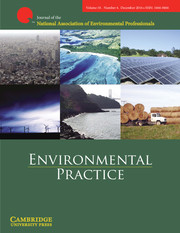During the past four years, the United States (US) government has taken unprecedented action to protect and restore the Great Lakes. In 2009, President Barack Obama launched the Great Lakes Restoration Initiative to coordinate the work of 16 federal agencies that implement over 140 separate Great Lakes programs and to supplement the resources they need to do their jobs. A growing number of members of Congress from the Great Lakes region—from both sides of the aisle—stepped forward to support and sustain the Initiative. Then, in 2012, the US and Canada amended the Great Lakes Water Quality Agreement to address climate change, invasive species, and other environmental threats that that were not even acknowledged when the agreement was last updated 25 years ago.
This recent work on Great Lakes issues has been binational, multidisciplinary and bipartisan—in stark contrast to the fragmentation and polarization that characterize so many public policy debates in the world today. A major reason for this difference is the professionalism of the scientists, engineers, lawyers, and other environmental experts that are working together to implement the Great Lakes Restoration Initiative and the amended Great Lakes Water Quality Agreement. It is, therefore, especially fitting that the National Association of Environmental Professionals has chosen to highlight the Great Lakes in this issue of Environmental Practice.


